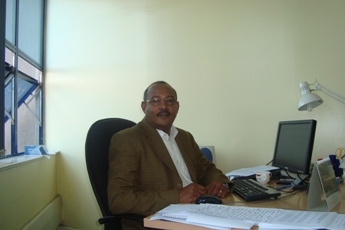Sudan expert says Darfur referendum aims to contain rebel demands
March 7, 2011 (NAIROBI) – A prominent Sudan expert has opined that the Sudanese government’s decision to hold a referendum on the administrative status of the troubled western region of Darfur is actuated by political interests whose aim is to circumvent demands for a potent regional authority in the region.

Darfur region, which historically stood as an independent sultanate until it was incorporated into Sudan in 1916, is currently divided into three states: north Darfur, south Darfur and west Darfur.
The region has been the scene of an armed conflict between the Sudanese government and rebels accusing them of neglecting the region since 2003. War in the region has killed more than 300, 000 and displaced 2.7 million, according to UN figures.
The DPA was signed in Abuja in 2006 between the government and the Darfur rebel group Sudan Liberation Movement led by Minni Arkoi Minnawi who defected from the government this year and declared war on Khartoum, accusing it of failing to implement the deal.
Sudan adviser at the International Crisis Group (ICG), Fouad Hikmat, told Sudan Tribune that the move poses the question of whether the DPA is still a valid reference to the ongoing peace talks between Sudan and rebels in the Qatari capital of Doha, noting that main groups involved in the talks, the Justice and Equality Movement (JEM) and the Liberation and Justice Movement (LJM), reject the DPA.
Darfur rebel groups strongly rejected the idea of a referendum on Darfur status. “We reject this step, which impedes the progress of peace negotiations in Doha, and transgresses clearly what has been agreed in the framework agreements and good intentions,” said a joint statement released by the Justice and Equality Movement (JEM) and LJM on Thursday from Doha.
Hikmat said that the prevailing view among Darfur elites and former administrators is that the reunification of the region would be a boon to the impoverished region, particularly in terms of devising development projects.
He said that implementation of development projects necessitates that Darfur is looked at as one region given the reality on the ground, adding that this view is also shared by rebel groups.
Darfur rebel groups have been at loggerheads with the government over their demands to establish a regional authority and gain representation at the top of decision-making circles in the country with the position of a vice-president.
Recent proposals handed by the mediation to the government and the LJM failed to break the deadlock on the issues of Darfur status and the vice-president.
“These two demands supersede the mandate of the DPA,” said Hikmat who later suggested that the decision to organize a referendum in Darfur is a “purely political” one whose purpose is to “put a ceiling to the demands of rebels in Doha.”
“It seems to me [it is] a pure political decision rather than a decision to move Darfur towards a lasting sustainable peace,” Hikmat said.
In Hikmat’s opinion, a push for referendum in Darfur shows that the government is “very concerned about its survival” because what Darfur needs is a strong regional authority which will foster Darfuri-Darfuri dialogue and can potentially become a serious threat to the survival of the government in Khartoum.
(ST)
